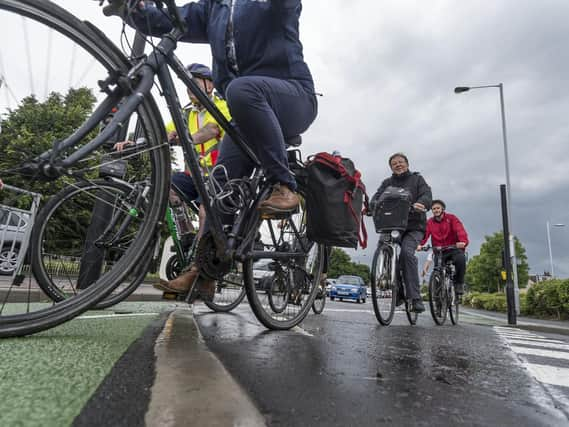Column: Time to rethink life after Covid-19 crisis


Coronavirus has been bad for the world. Tragically, hundreds of thousands have died across the world.
People and families are suffering financial hardship and there are difficult times ahead.
Advertisement
Hide AdAdvertisement
Hide AdAs the contagion subsides and fatalities are fewer each day, restrictions are lifting and, if progress continues, will lift further. We are heading out of lockdown, but what will that future look like, can we shape it and are there any positives we have learned amidst the tragedies of the Covid-19 outbreak? I believe that there are. And I believe that this learning is important for Government, business and individuals.
Government needs to build greater capacity and agility into our economy. The response to Covid-19 in some areas of the economy, both public and private sectors, has shown speed and resilience such as the construction of the Nightingale Hospitals or the way food manufacturers and retailers have worked to keep shelves stocked.
The global shortage of PPE has highlighted problems. No country has kept the hundreds of millions of pieces required, especially as some pieces also have limited shelf life, and all have therefore struggled to restock. So in addition to storage of a reasonable contingency, our economy must be agile enough to see production lines change quickly to manufacture PPE, and that will mean more domestic manufacturing too such as the recently signed deal with Honeywell. The question is how to scale up when demand surges.
It is a similar story with other products – some foodstuffs, testing kits and more. There will be lessons too on the distribution of goods. Businesses have told me that they are looking to make supply chains shorter. How supply chains work will change and that also presents domestic opportunity.
Advertisement
Hide AdAdvertisement
Hide AdMany businesses and employees have experienced working from home for the first time or to a greater degree than previously. Does this give us an opportunity to build more home-working into our lives?
There could be many advantages: fewer cars on the roads, lower exhaust emissions, less demand for oil, more space on our roads for buses and bikes and so on. Periodic regular working from home might also be good for the well-being of employees and actually increase productivity for businesses.
Some businesses have unexpectedly found that their product is successful when run online. For instance, exercise classes at some gyms have been broadcast and the number of people exercising has grown compared to a traditional studio class. Many food and drink businesses have launched online ordering and delivery. How is this to be incorporated into our lives?
That leads to a likely permanent increase in online shopping, particularly for big chains. There may be much more vacant retail and office space. Businesses and Government need to look at how this should be utilised so that our town centres remain or become vibrant and alive. Can we make it easier for vacant units to become residential or community use and build people back into our retail centres?
Advertisement
Hide AdAdvertisement
Hide AdAnd what about our behaviour as individuals? We know now, if we didn’t before, that if we protect our health we can protect our NHS. Our health is first and foremost our personal responsibility. Simple acts like staying in when we feel unwell and washing our hands can make a difference. A&E admissions caused by injuries acquired due to excessive alcohol consumption are down 60 per cent.
We have experienced cleaner air. We have been able to cycle safely on our roads. Do we really want to go back to a world where we sit in traffic jams and where we can see and taste the pollution in the air?
The normal we knew at the beginning of the year isn’t coming back quickly. But despite all the misery of coronavirus we need to ask whether there are aspects of the new normal that could be better for the lessons coronavirus has taught us.